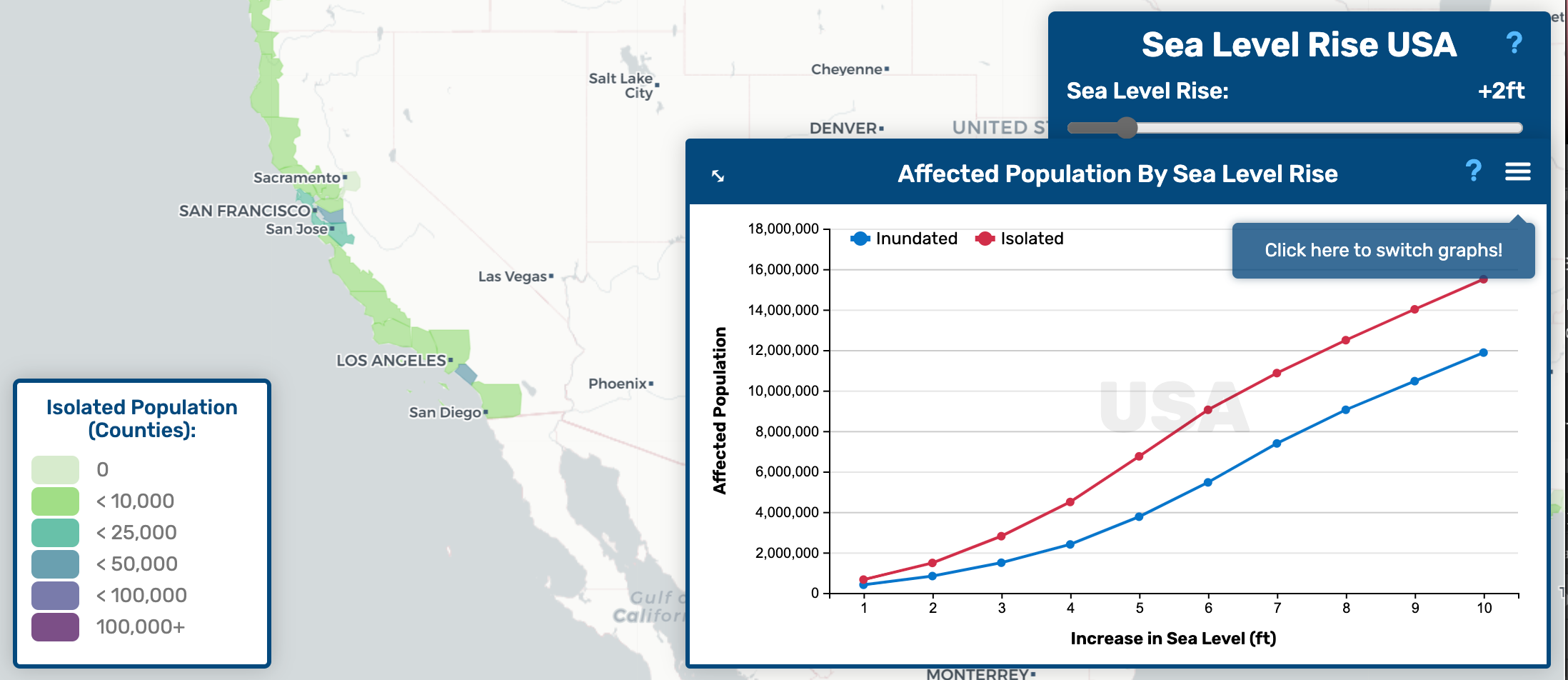 |
Rising sea levels could impact quality of life in coastal areas within a shorter timeframe than previously assumed, according to new research published in Nature Climate Change by a team that includes University of Maryland faculty member Allison Reilly. Their work, which also features an online dashboard, highlights a need to rethink the metrics that are used in planning for climate-related displacement.
Such planning typically relies on inundation–that is, the point at which a parcel of land is submerged under water–as its primary metric. Yet long before that point has been reached, residents will already face increased isolation, with impassable roads cutting off access to work, shopping, healthcare and education.
“We found that isolation risks can precede inundation by decades,” Reilly said. “As a metric, property inundation can’t capture the full extent of indirect and cascading effects that result from sea level rise. We need to factor in isolation as well.”
In their paper, lead author T. M. Logan (University of Canterbury, New Zealand), M. J Anderson (University of Canterbury, New Zealand) and Reilly zoomed in on localities, quantifying the likelihood that a specific parcel or area will lose access to central services, given various sea level scenarios. They fed in information about mobility behavior—that is, where people need to go in order to work, shop, or access services—as well as variables such as road elevation, then used routing algorithms to determine how people can get to their destinations. When combined, these data points support projections about when a particular location will become cut off.
 Meanwhile, the online dashboard created in conjunction with the paper is meant to provide policymakers with easily accessible, actionable information that can be used in planning for the increased lack of access, whether by elevating roadways or armoring them against salination, or by decommissioning them as the communities they serve migrate elsewhere. Meanwhile, the online dashboard created in conjunction with the paper is meant to provide policymakers with easily accessible, actionable information that can be used in planning for the increased lack of access, whether by elevating roadways or armoring them against salination, or by decommissioning them as the communities they serve migrate elsewhere.
“Many state agencies just don’t have the data they need to understand what their isolation risks are, and we’d like to start that conversation,” Reilly said. “We hope our research will encourage state departments of transportation to think about how to best manage road assets, given these risks.”
“We’re also hoping to reach a broader audience of people involved in climate change adaptation planning and make them aware of the need to rethink some of the metrics,” she said. “Metrics that are based on inundation can really overestimate the amount of time that we actually have to respond to the changing climate.”
A member of the UMD civil and environmental engineering faculty since 2016, Reilly has dedicated much of her research expertise to the study of climate threats and how they affect coastal communities, both in Maryland and nationally. In 2019, she won a National Academies of Sciences, Engineering, and Medicine Early-Career Gulf Research Fellowship that supports work related to the well-being of coastal communities. She currently leads a major, Environmental Protection Agency-funded study that examines how sea level rise could induce septic tank failures in coastal areas, adversely impacting many economically disadvantaged and historically Black communities.
An NSF CAREER Award recipient, Reilly holds the Pedro E. Wasmer professorship of Engineering at UMD and is a member of the Center for Disaster Resilience, a research hub based at the department.
Related Articles:
Grant Awarded for Study of Climate-Induced Septic Tank Failures
No Easy Way Home
Advancing Climate-Smart Construction
Ayyub Named One of ENR's 2017 Top 25 Newsmakers
Conduit Study Wins Capstone Expo Award
Key Bridge: What Comes Next?
A Wider Lens
Ayyub Featured in ASCE Article on Climate Resilience
Rejoining the Paris Accord: Scholars Respond
How COVID Complicates a Historic Hurricane Season
May 23, 2023
|

